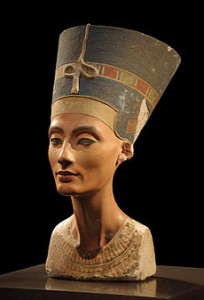 Writing in the Catholic Herald, a priest, Fr. Alexander Lucie-Smith, compares Kim Jong-Un with Henry VIII, the king who (according to paper’s headline-writers “founded the Church of England”: nope, it was Elizabeth I who did that, but no matter):
Writing in the Catholic Herald, a priest, Fr. Alexander Lucie-Smith, compares Kim Jong-Un with Henry VIII, the king who (according to paper’s headline-writers “founded the Church of England”: nope, it was Elizabeth I who did that, but no matter):
…The court of Mr. Kim might well be riven by deadly infighting. Indeed, it would be surprising were it not. If Mrs. Kim has persuaded her husband to get rid of Ms Hyon, this was no more than what went on in another court. Anne Boleyn constantly nagged Henry VIII to have Katharine of Aragon and her daughter the Lady Mary executed; she was also keen to see Cardinal Wolsey go to the block; as it turned out, he resisted her nagging at least with regard to the Queen and the Princess, and in the end had Anne executed, about which she could hardly complain.
There are other parallels with the Tudors. Mr. Kim seems to favour novel methods of execution. Ms Hyon was machine gunned; Anne Boleyn was executed with a sword rather than the axe, even though, as the historian Alison Weir has pointed out in her excellent The Lady in the Tower, a sword may in fact be much more painful. But Mr. Kim goes further than Henry VII ever did. He had one general, according to the Telegraph, executed by mortar round, which is highly original.
The idea of guilt by association is also reminiscent of Tudor times. When Anne Boleyn fell, her uncle the Duke of Norfolk was keen to show his disapproval of his niece, and presided at her trial and voted for her death. When he second niece to marry the King, Katharine Howard, fell, his protestations were even more voluble, especially as several members of the Howard family spent some time in the Tower, thanks to guilt by association. Katharine Howard’s brothers rode through the City of London in their best clothes in a bid to disassociate themselves from the wretched girl’s misfortune; it was a move that worked.
Just as both of Henry’s wives, and indeed his other victims, may have been condemned on trumped up charges, so it seems that Ms Hyon and her colleagues were condemned to death for incoherent indeed contradictory offences: for making pornographic videos of themselves and for the possession of Bibles. The pornography charge sounds as convincing as Anne Boleyn’s alleged witchcraft.
We may well condemn what happens in North Korea, but this sort of thing is to be expected in places where there is no rule of law beyond the will of the presiding autocrat, who is anything but benign…
It’s a silly comparison. Henry the Liberator was a savage man in a savage era, but regardless of his motives, he established the principle that Englishmen should be governed by English laws, a principle that—more or less—endured until Britain joined what became the EU.
At this point, there’s no better course than, yet again, to quote the (admittedly controversial) English Conservative statesman, Enoch Powell:
The relevant fact about the history of the British Isles and above all of England is its separateness in a political sense from the history of continental Europe…When Henry VIII declared that ‘this realm of England is an empire (imperium) of itself’, he was making not a new claim but a very old one; but he was making it at a very significant point of time. He meant—as Edward I had meant, when he said the same over two hundred years before—that there is an imperium on the continent, but that England is another imperium outside its orbit and is endowed with the plenitude of its own sovereignty. The moment at which Henry VIII repeated this assertion was that of what is misleadingly called ‘the reformation’—misleadingly, because it was, and is, essentially a political and not a religious event…
The whole subsequent history of Britain and the political character of the British people have taken their colour and trace their unique quality from that moment and that assertion. It was the final decision that no authority, no law, no court outside the realm would be recognized within the realm. When Cardinal Wolsey fell, the last attempt had failed to bring or keep the English nation within the ambit of any external jurisdiction or political power: since then no law has been for England outside England, and no taxation has been levied in England by or for an authority outside England—or not at least until the proposition that Britain should accede to the Common Market [the future EU].
And childish, ahistorical comparisons with a psychotic North Korean playboy will not change that fact.








